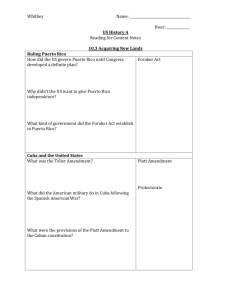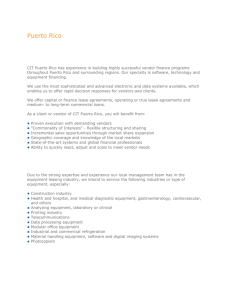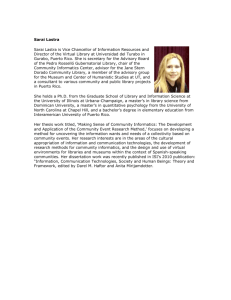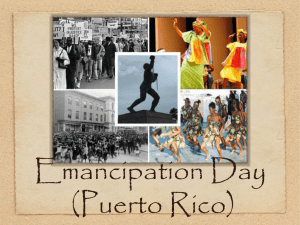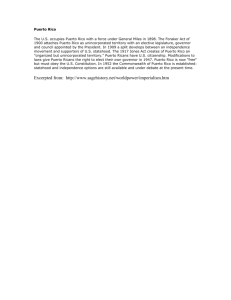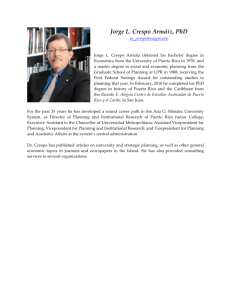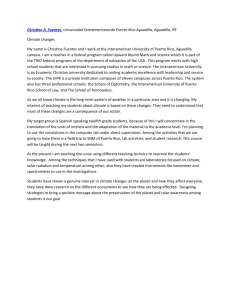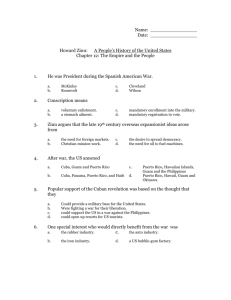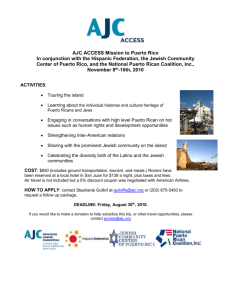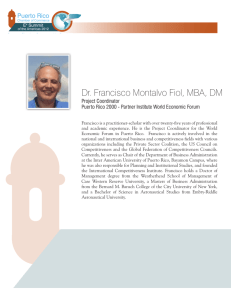Historical Overview of Puerto Rico's Economy and its Political Status
advertisement
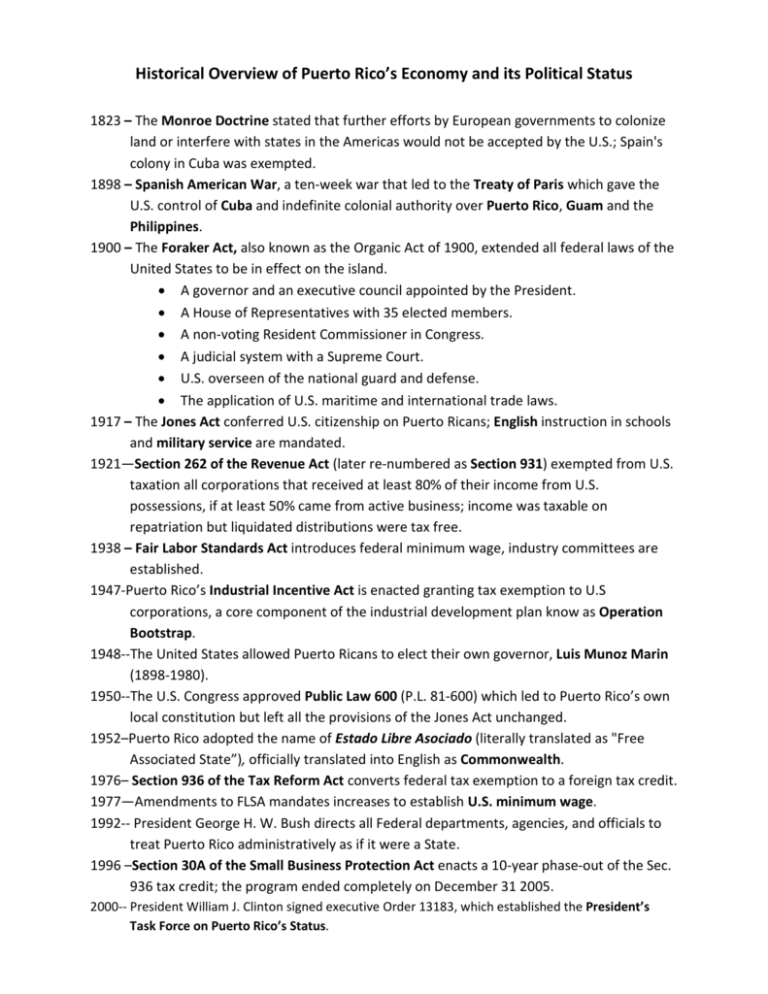
Historical Overview of Puerto Rico’s Economy and its Political Status 1823 – The Monroe Doctrine stated that further efforts by European governments to colonize land or interfere with states in the Americas would not be accepted by the U.S.; Spain's colony in Cuba was exempted. 1898 – Spanish American War, a ten-week war that led to the Treaty of Paris which gave the U.S. control of Cuba and indefinite colonial authority over Puerto Rico, Guam and the Philippines. 1900 – The Foraker Act, also known as the Organic Act of 1900, extended all federal laws of the United States to be in effect on the island. • A governor and an executive council appointed by the President. • A House of Representatives with 35 elected members. • A non-voting Resident Commissioner in Congress. • A judicial system with a Supreme Court. • U.S. overseen of the national guard and defense. • The application of U.S. maritime and international trade laws. 1917 – The Jones Act conferred U.S. citizenship on Puerto Ricans; English instruction in schools and military service are mandated. 1921—Section 262 of the Revenue Act (later re-numbered as Section 931) exempted from U.S. taxation all corporations that received at least 80% of their income from U.S. possessions, if at least 50% came from active business; income was taxable on repatriation but liquidated distributions were tax free. 1938 – Fair Labor Standards Act introduces federal minimum wage, industry committees are established. 1947-Puerto Rico’s Industrial Incentive Act is enacted granting tax exemption to U.S corporations, a core component of the industrial development plan know as Operation Bootstrap. 1948--The United States allowed Puerto Ricans to elect their own governor, Luis Munoz Marin (1898-1980). 1950--The U.S. Congress approved Public Law 600 (P.L. 81-600) which led to Puerto Rico’s own local constitution but left all the provisions of the Jones Act unchanged. 1952–Puerto Rico adopted the name of Estado Libre Asociado (literally translated as "Free Associated State”), officially translated into English as Commonwealth. 1976– Section 936 of the Tax Reform Act converts federal tax exemption to a foreign tax credit. 1977—Amendments to FLSA mandates increases to establish U.S. minimum wage. 1992-- President George H. W. Bush directs all Federal departments, agencies, and officials to treat Puerto Rico administratively as if it were a State. 1996 –Section 30A of the Small Business Protection Act enacts a 10-year phase-out of the Sec. 936 tax credit; the program ended completely on December 31 2005. 2000-- President William J. Clinton signed executive Order 13183, which established the President’s Task Force on Puerto Rico’s Status.
